Roof replacement is a major undertaking for any homeowner, and probably one of the most intense restorations you will face. There are several factors that go into the cost of roof installation and replacement. The price of the materials we choose is of key importance, usually going hand in hand with their quality. We can divide the solutions available on the market into so-called “premium class” products, while others are more of an economic option. The latter usually require less financial outlays from homeowners. Another vital factor is also the roofer’s remuneration, which will depend, among other things, on the area and complexity of your roof. So, what costs should we be prepared for in connection with the roof replacement?
On average, roof replacement costs around $9,000, while many American homeowners can expect to spend anywhere from $5,700 to $12,300 for the project. High-end, spacious roofs can cost thousands, or even hundred thousands, of dollars.
Here’s a breakdown of the project and what is involved in estimating the cost of your roof replacement:
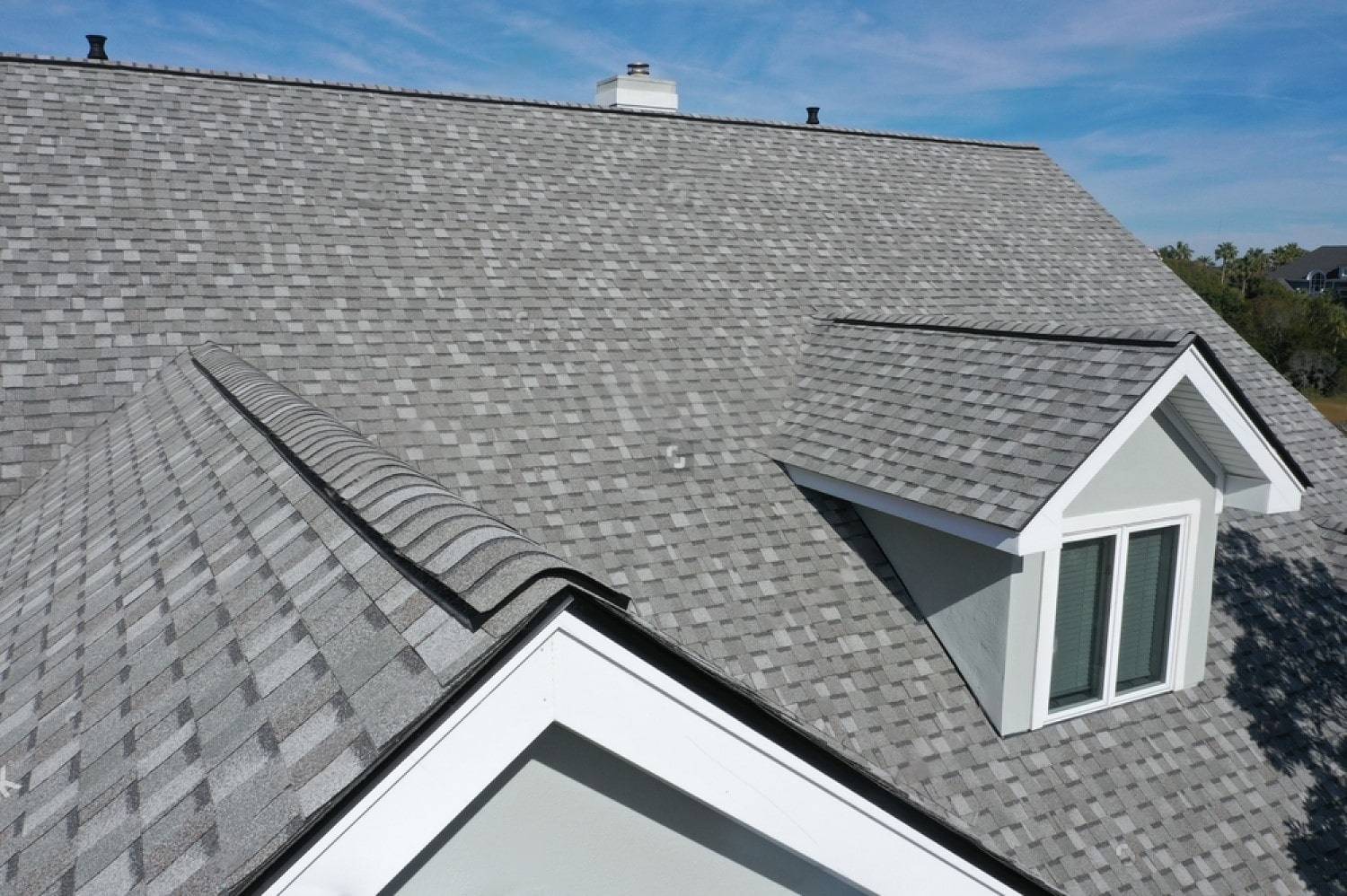
Size Of The Roof
Size of your roof is clearly one of the most important elements in calculating the cost of your roof replacement, especially when adding square footage of steep roof pitches. The price of roof replacement is mostly estimated based on the square footage, where average homeowners pay anywhere from $4.30 to $11 per square foot. Having that in mind and knowing the size of your roof, you can easily calculate the cost of its replacement. For instance, a 1,800 square foot roof will have an average cost between $7,830 to $19,800 depending on the cost per square foot.
Pitch of Your Roof
Not only does a roof pitch add square footage to the overall size of your roof, but it also requires specialized equipment for the crew to work on in a safe and efficient way. The steeper the roof pitch, the higher the overall cost of the project as more labor and material is required. You can expect to add around $1,000 to $3,000 in labor costs. When considering the pitch of your roof, contractors refer to 6:12 pitch and anything higher than that as a more complex task and more hazardous conditions. Typical roofs of most American homes range from 3:12 to 6:12 pitch, while a roof pitch of 12:12 is an angle of 45 degrees. A rule of thumb is that a higher pitch is equivalent to a higher cost.
Labor
Labor is usually calculated based on square footage as well. Most roofers charge approximately $2 per square foot for labor, and with good reason. Working on a roof is an intense, laborious job requiring a lot of experience, skill, and knowledge. In addition, replacing your roof also means the crew has to remove old materials before placing new shingles, and this part of the project is the most strenuous of all.
When calculating the cost of roof replacement, labor takes up more than half of it, typically amounting to 60 percent of the total cost. If the total cost of roof replacement equals $7,000, around $4,200 is due to labor itself.
Necessary Materials
The cost of new materials intended to use for your new roof is crucial in calculating the cost of its replacement. The cost of material is strongly correlated with the geographical location of your home. In Europe, for instance, most economical solutions for roofing materials were until recently metal roof tiles, which became significantly more expensive due to the changes in the energy market. Currently, the most attractive price belongs to tile option.
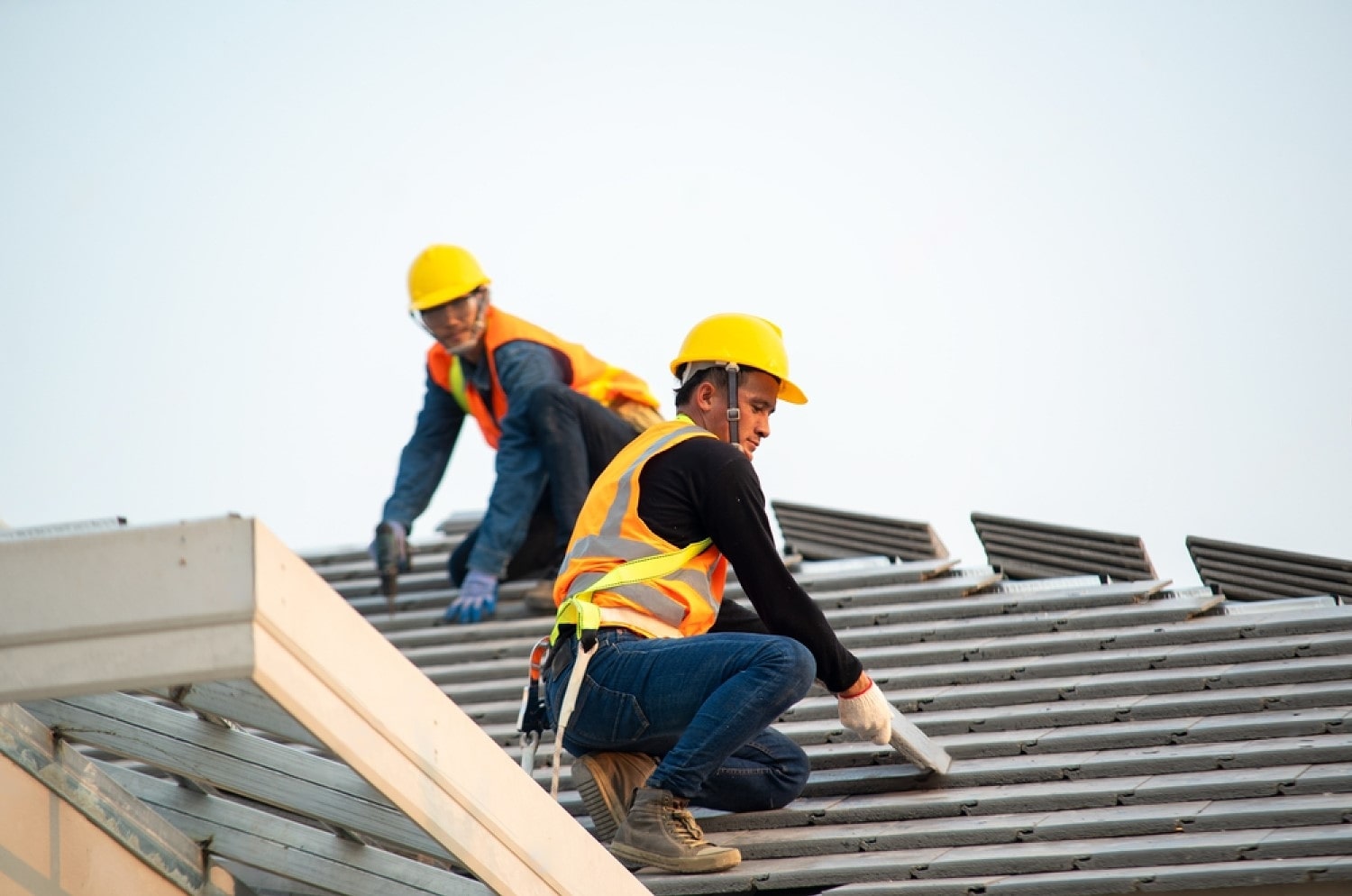
In the United States, however, the most cost-effective roofing solution remains asphalt shingles. However, asphalt material varies from basic to premium options, where basic asphalt shingles can cost anywhere from $2,000 to $4,000, while for copper you can expect to pay more than $40,000 for material alone.
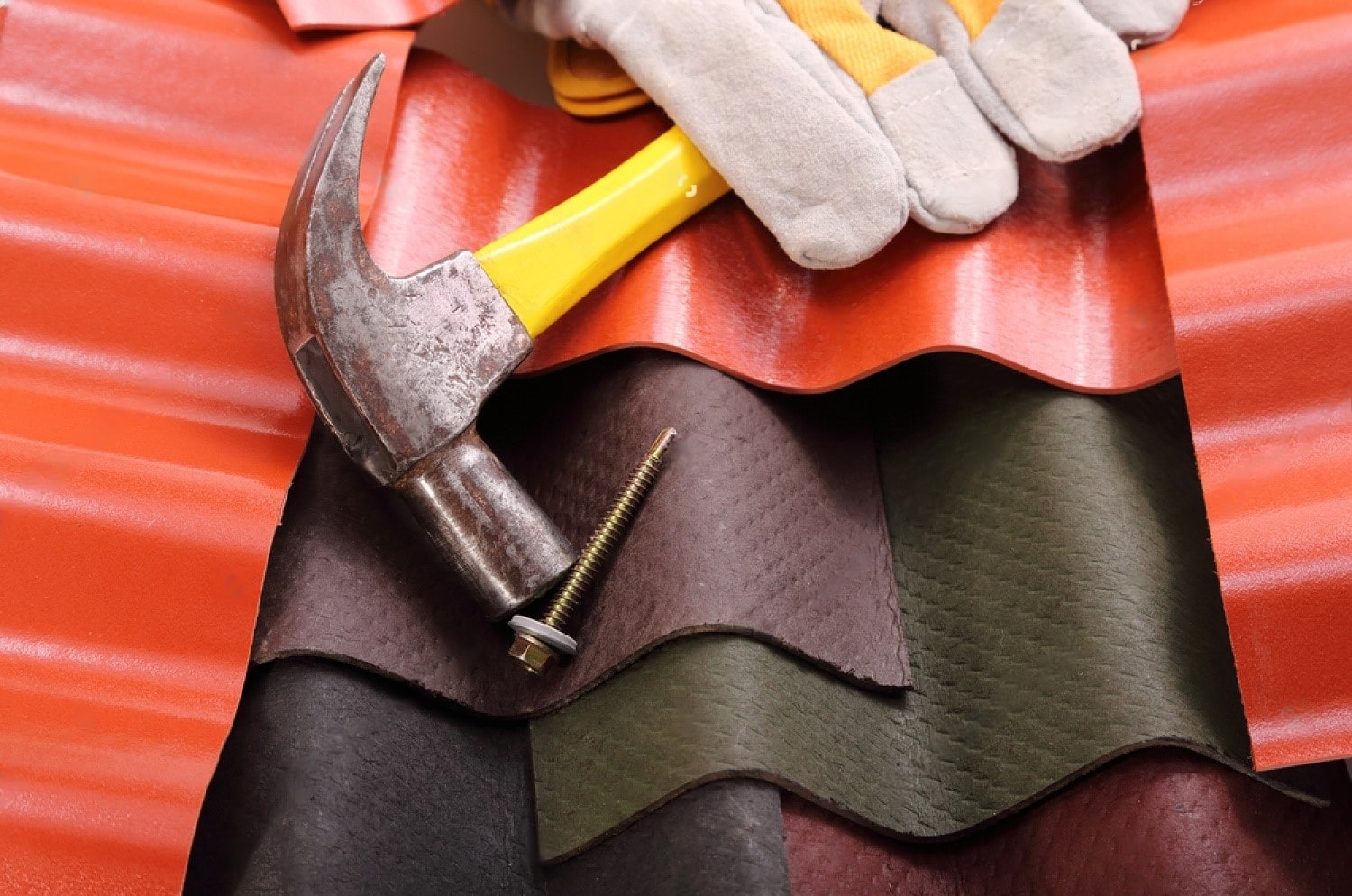
Breakdown of Material Cost
Material plays an integral role in determining the overall cost of your roof replacement project. The type of material used has its pros and cons. Let’s take a look at some of the options available on the market:
Asphalt
Asphalt shingles are definitely budget-friendly. Current roofing industry offers a wide range of styles and colors to match any architectural style. Asphalt is also lightweight, which can cut your labor cost significantly compared to choosing a heavy duty material for your roof. Asphalt shingles are extremely popular, which is why most roofing companies have adequate knowledge and experience in working with this material. Asphalt shingles are also easy to install, so you do not risk any surprises or unexpected expenses associated with the roof job.
Tile
While relatively affordable in Europe, tile belongs to the more pricey option when it comes to roofing materials. Tile is aesthetically pleasing by itself, and manufacturers offer a wide selection of styles, shapes, and color to fit any design. Tile roofing is also very durable and easy to repair.
Wood Shake
Wood shake is a type of roofing material that is universally attractive to the eye, possessing the natural beauty and appearance. While easy to repair, wood is susceptible to mold, mildew, and pests, which requires high-maintenance year-round. Depending on the type of wood shingles used, you may be required to pay anywhere from $4 to $10 per square foot, with cedar being one of the more expensive options.
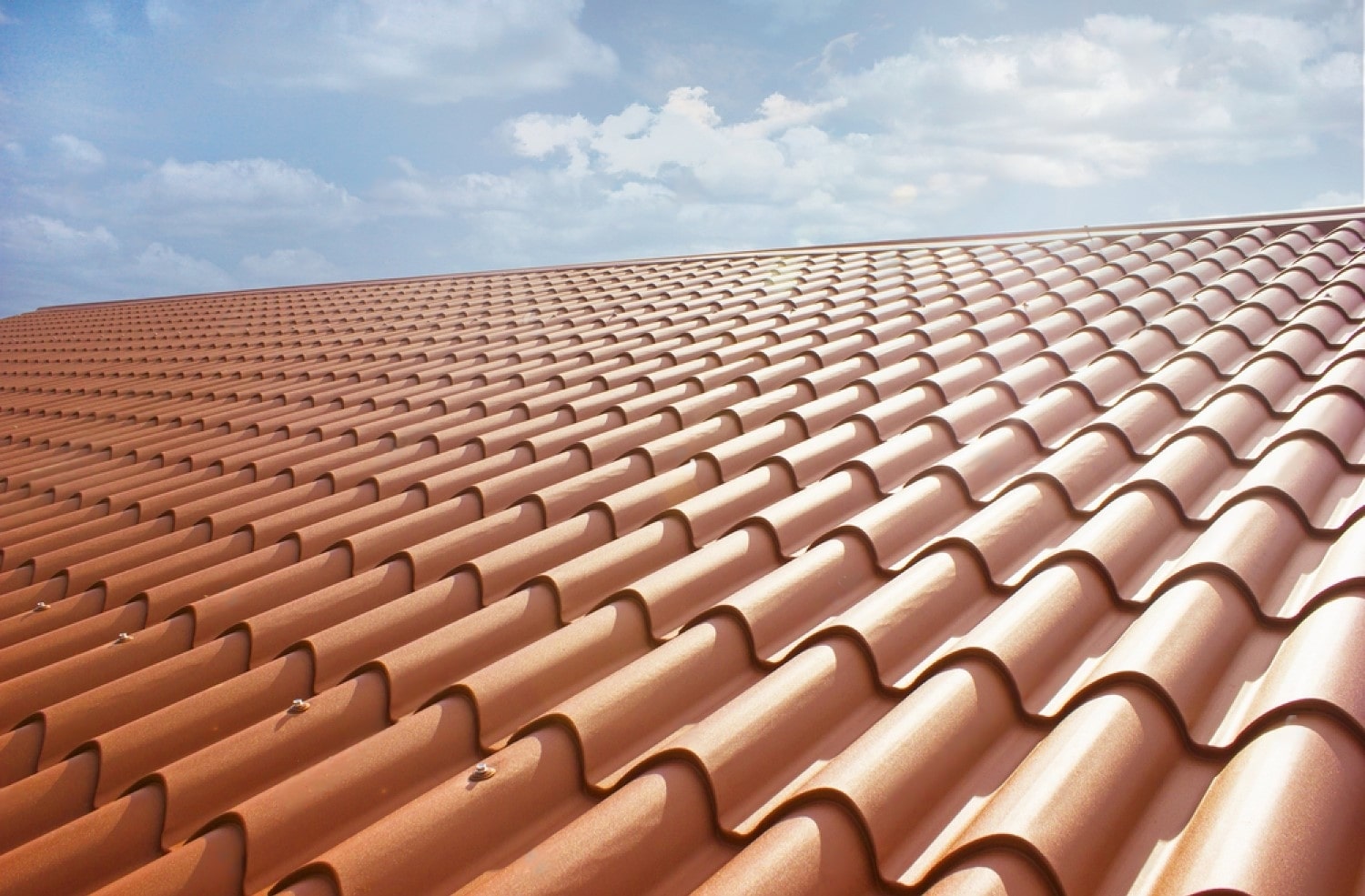
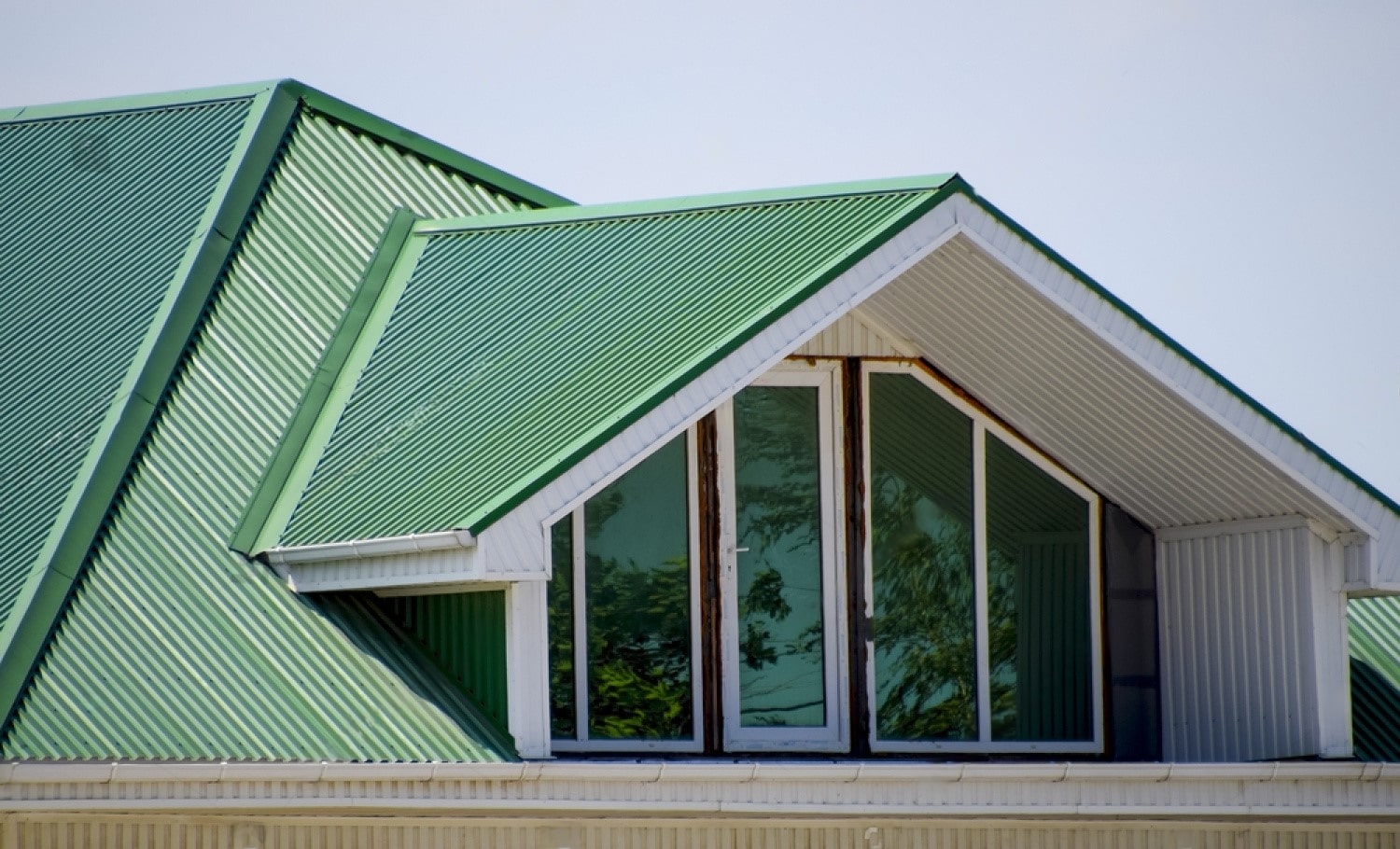
Metal
Metal is undoubtedly one of the most durable and long lasting options available on the market. The material is immune to insect damage and impervious to mold and mildew. It does require a higher level of skill from your roofer and the price for the material ranges from mid-level to high-end.
Slate or Stone
Considered the most expensive material for a roof, slate provides a luxurious, bouji appearance. This high-end product also comes with a high-end price. Slate is extremely durable and long-lasting, providing your home with a beautiful curb appeal and natural insulation as a bonus.

